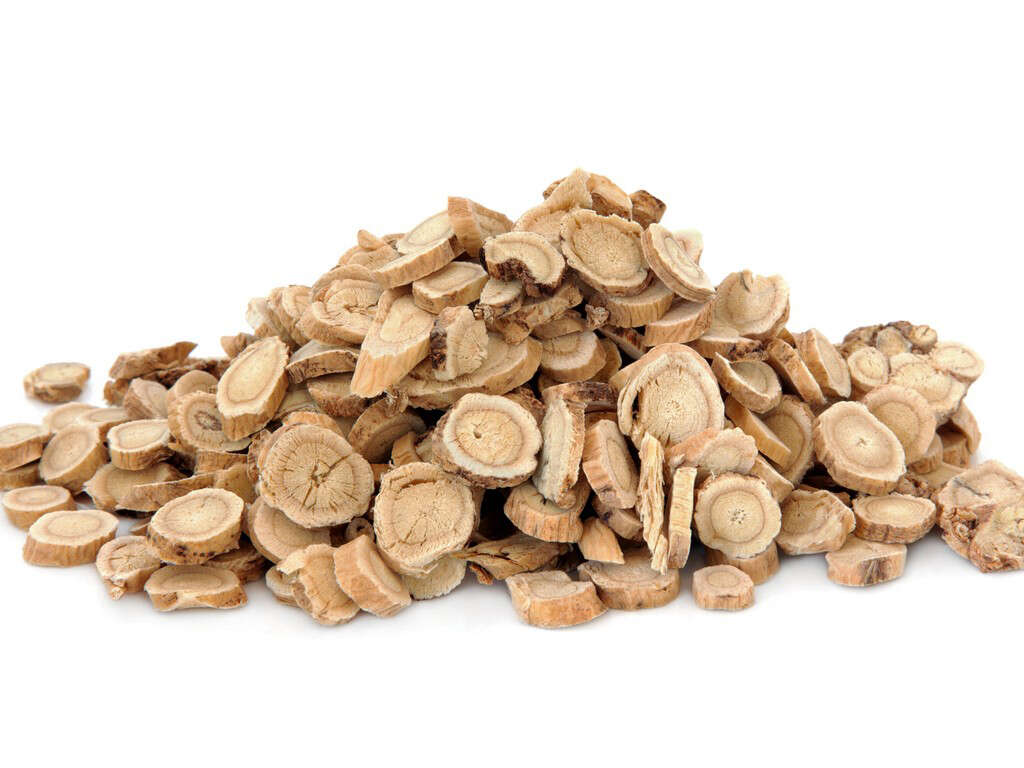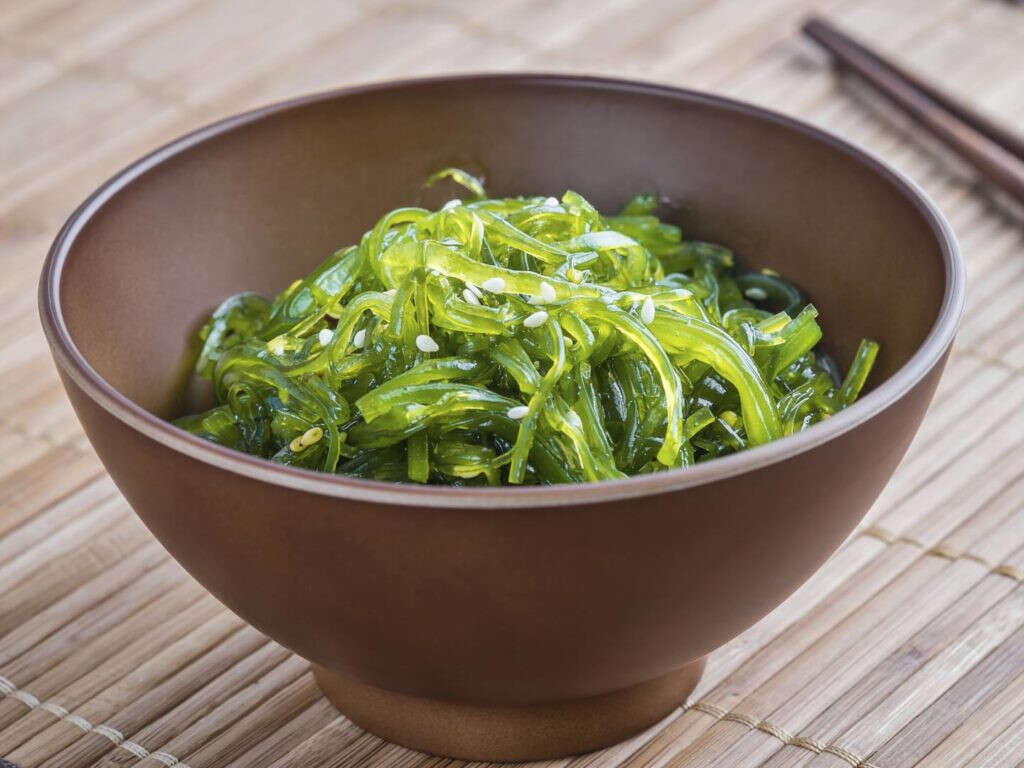10 Benefits of Thyme
Thyme is a strongly fragrant herb that is a great addition to a variety of dishes. It is a popular herb in the Mediterranean regions of Europe that has been used for culinary and medicinal purposes throughout history. A member of the mint family, it has the presence of thymol, which is a naturally occurring biocide that has the potential to destroy harmful organisms. Thymol is actually used in Listerine mouthwash and Vicks VapoRub because of its antifungal properties.
Throughout history, thyme was used to prevent poisoning by putting it in baths to stop the effects of poison. Prior to antibiotics, thyme oil was used to medicate bandages. Its many health benefits make this herb a great ingredient in modern cooking and antibacterial products.
Thyme Benefit #1: Helps Treat Respiratory Disorders
The antibiotic properties of thyme make it an excellent respiratory remedy for conditions such as congestion, cough, and bronchitis. It is prepared by steeping the leaves in hot water, as any other tea, and adding a little bit of honey to help with symptoms. Regular consumption has shown to be able to help clear respiratory conditions such as the common cold.
One study examined the effects of thyme oil on tonsillitis and whooping cough. Significant antibacterial activity against certain organisms were examined in this study. Thyme showed to have major pharmacological properties on coughs in adults examined in the study.
Thyme Benefit #2: Reduces Inflammation
Thyme has anti-inflammatory properties by inhibiting COX-2, an inflammatory enzyme found in the body. It is similar to the benefits of resveratrol, a chemical linked with health benefits of red wine. Medicine such as Celebrex is also a COX-2 inhibitor, just as thyme, however Celebrex was pulled off the market for having cardiovascular side effects.
One study suggests that thyme significantly reduced the production of gene expression of inflammatory mediators, making it an excellent source of anti-inflammatory effects. It reduced pro inflammatory cytokines as well, which suggests that the essential oils from thyme could be used as a treatment for chronic diseases based on inflammatory processes.
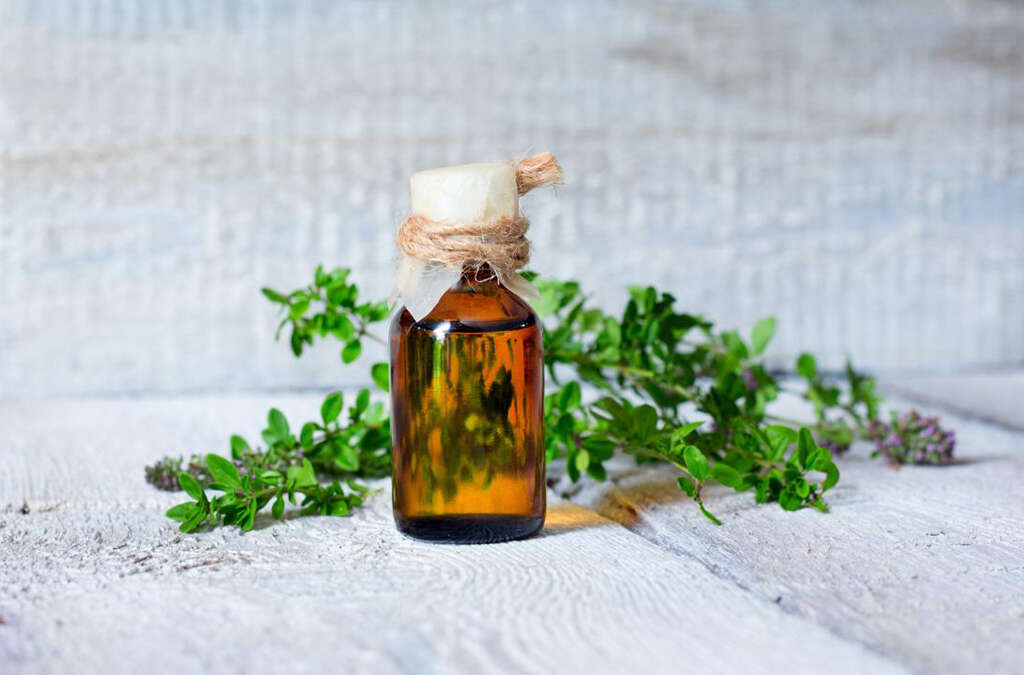
Thyme Benefit #3: Helps Treat Athlete’s Foot
Athlete’s foot is caused by fungal growth. Studies have shown that thyme has antifungal effects that inhibit the growth of dermatophytes that cause nail fungus. One study showed that thymol oil has been effective by disrupting the cell membrane and metabolism of the fungus. It is recommended to add the essential oil in foot baths for optimal use.
Another study found that a 1% solution of thyme oil cured animals infected with fungus including Trichophyton mentagrophytes, T. Rubric and T. Tonsuring. The observation was 37 days and the study found that the animals treated with the oil were cured.
Thyme Benefit #4: Promotes Bone Health
Increasing consumption of herbs is a beneficial approach in promoting bone health and reducing the risk of osteoporosis. Research suggests that the use of common herbs, including thyme, can inhibit the breakdown of bone in osteoporosis. Thyme is also one of the richest sources of calcium and magnesium, which are essential in bone health.
One study examined osteoporosis and bone mass reduction in women. The study examined treatment with thyme and its effect compared to treatment with Calcium plus vitamin D3. They found that there was a significant reduction in mean serum ionized calcium with the group treated with thyme as well as the group treated with calcium supplementation.
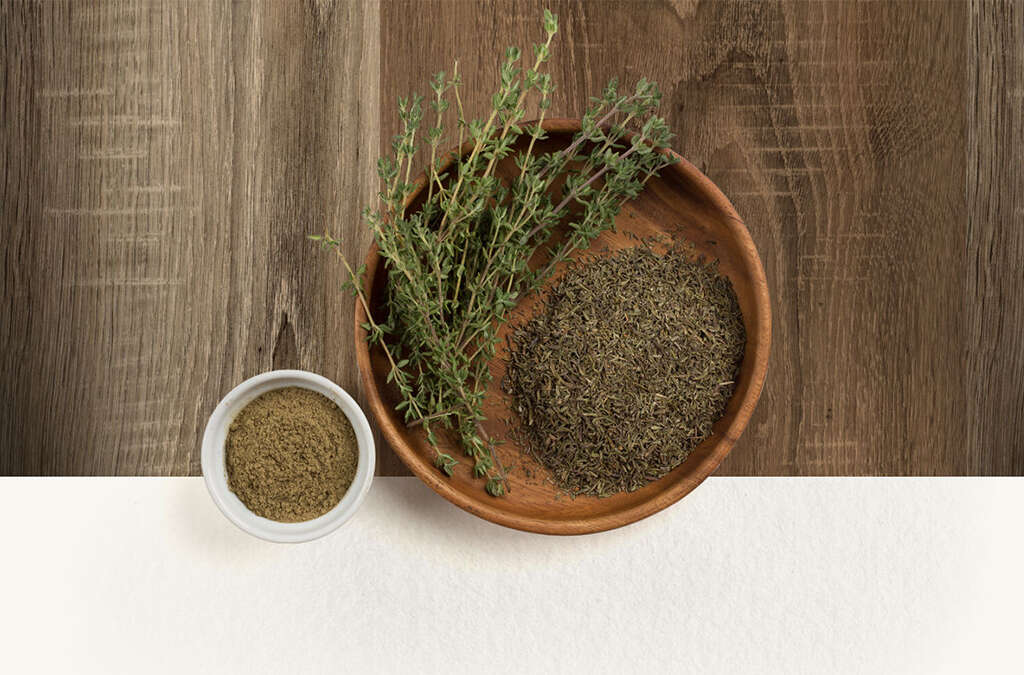
Thyme Benefit #5: Improves Cardiovascular Health
Chronic inflammation is one of the leading causes of cardiovascular disease. The combination of antioxidant and anti-inflammatory effects of thyme helps prevent chronic inflammation in the body. Thyme oil has shown to be beneficial because its antispasmodic property promotes cardiac health. In other words, it enables the proper function of cardiac valves and relaxes arteries and veins. By doing so, blood pressure and heart strength can be improved and function efficiently.
Thyme also contains vitamins A, B, C, E and K along with folic acid, making it an excellent herb to help improve heart health. It can also contribute to stabilizing blood pressure and keeping all your organs in top condition, including the heart.
Thyme Benefit #6: Antibacterial Properties
Thyme is well known for its antibacterial properties and its ability to fight off varieties of fungi and bacteria, including e.coli. Research has shown that thyme oil extract has shown to be beneficial in fighting against antibiotic resistant strains of different bacteria types. Not only does thyme help with bacteria inside the body, but it also helps fight bacteria outside of the body, including the skin.
One study examined the strong antiseptic activity of thyme against bacterial strains such as staphylococcus, enterococcus and pseudomonas genera. The study showed that thyme oil had better efficacy against the antibiotic resistant strains than lavender oil.
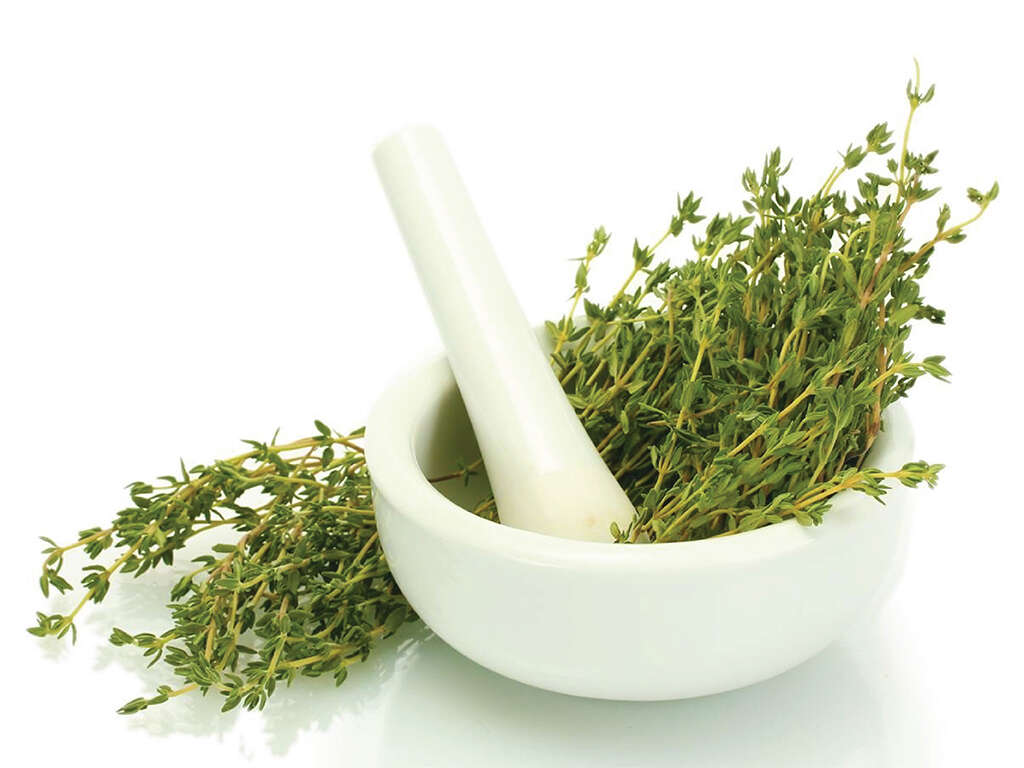
Thyme Benefit #7: Helps Maintain Oral Health
The antibacterial properties of thyme have shown to benefit oral health as well. It has been used often as a popular remedy for bad breath because of its ability to fight bacteria and infection in the mouth. Thyme has also been used as an ingredient in mouthwashes to help cure cavities and gingivitis. Thyme oil has been used as a dental varnish to protect the teeth from decay.
One study examined five different essential oils and their inhibitory concentration against oral pathogens. Out of the five essential oils, the study found that thyme oil, peppermint oil and tea tree oil were the most effective oral antiseptic solutions.
Thyme Benefit #8: Helps with Sleep
Thyme tea has been commonly used with honey to help induce sleep. Thyme oil has shown to lessen tiredness and bring up mood. One study examined the effects of thyme on sleep apnea. The miscommunication between the brain and respiratory system was treated significantly by the use of thyme oil. It also helps keep the respiratory system strong, therefore helping to treat the common cold and sleeping better.
Thyme has also been used throughout history to help ward off nightmares. It was said that placing thyme beneath your pillow can help you have a restful sleep and happy dreams.

Thyme Benefit #9: Diuretic Properties
Thyme oil has excellent diuretic properties, which helps the body eliminate excess toxins by increasing urination. By eliminating water, salts and toxins, the body has lower blood pressure and can lose weight faster. Thyme tea can also be used for individuals who have chronic renal failure.
Studies have also shown that thyme’s antibacterial and antifungal properties are what help act like a mild diuretic. This helps relieve high blood pressure as well as eliminate gas and indigestion. Its diuretic properties contribute to the variety of benefits that thyme has on the body.
Thyme Benefit #10: Fights Sore Throats
Thyme oil is one of the strongest antimicrobial herbs, making it an excellent weapon against sore throats. It is considered to be one of the best essential oils to alleviate sore throat pain.
In one study, thyme oil was tested on 120 different strains of bacteria, including bacteria from the respiratory tract. The results showed that thyme oil exhibited strong activity against all the strains of bacteria, especially those that were antibiotic resistant strains. It gathered that a sore throat may be relieved by adding the herb to cooking regularly to help soothe and kill germs.





